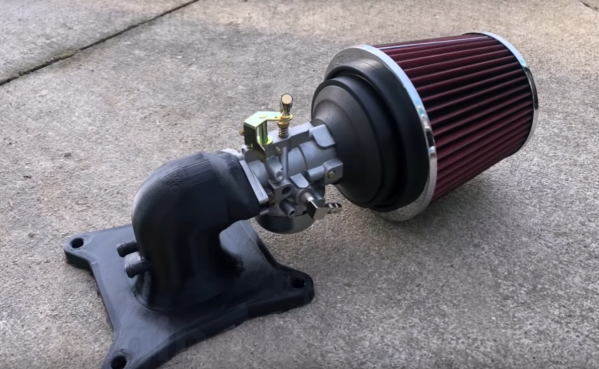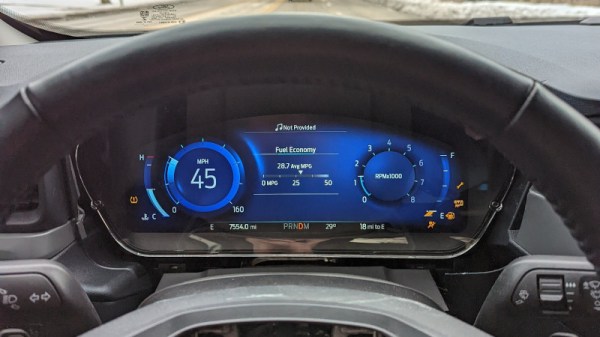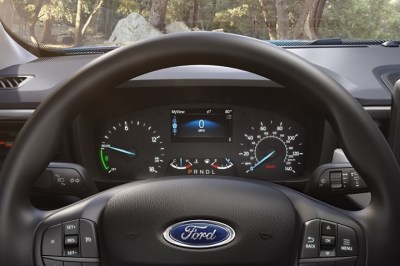Before the Ford marketing department started slapping Maverick badges on pickup trucks, the name had been attached to compact cars from the 70s instead. These were cheap even by Ford standards, and were built as a desperate attempt to keep up with Japanese imports that were typically higher quality and more efficient than most American cars at the time. Some people called them the poor man’s Mustang. While Ford and the other American car companies struggled to stay relevant during the gas crisis, it turns out that they could have simply slapped a lawn mower carburetor on their old Mavericks to dramatically improve fuel efficiency.
The old Maverick used a 5 L carbureted V8 engine, which is not exactly the pinnacle of efficiency even by 1970s standards. But [ThunderHead289] figured out that with some clever modifications to the carburetor, he could squeeze out some more efficiency. By using a much smaller carburetor, specifically one from a lawn mower, and 3D printing an adapter for it, he was able to increase the fuel efficiency to over 40 mpg (which is higher than even the modern Mavericks) while still achieving a top speed of 75 mph.
While it’s not the fastest car on the block with this modification, it’s still drives well enough to get around. One thing to watch out for if you try this on your own classic car is that some engines use fuel as a sort of coolant for certain engine parts, which can result in certain problems like burned valves. And, if you don’t have a lawnmower around from which to borrow a carb, take a look at this build which 3D prints one from scratch instead.
Thanks to [Jack] for the tip!
Continue reading “Lawn Mower Carburetor Improves Mileage On Old Sedan”













